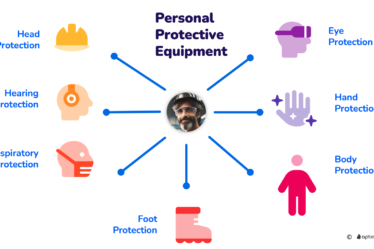
In the journey through life, one may find themselves grappling with the shadows of depression. It’s an experience that can cloud every aspect of existence, from the simplest daily tasks to the profoundest of life’s joys. Yet, within this darkness lies a potential for healing, a path illuminated by the power of individual counselling. In this article, we delve into the transformative role that individual counselling plays in managing depression, exploring its methodologies, benefits, and the profound impact it can have on the journey towards recovery.
Introduction To Depression
Before delving into the role of individual counselling, it’s crucial to understand the multifaceted nature of depression. It’s not merely feeling sad or down; a complex interaction of biological, psychological, and social elements is present in depression. From neurotransmitter imbalances to adverse life events, depression manifests differently for each individual, making it a deeply personal struggle.
The Importance Of Individual Counseling
Individual counselling stands as a beacon of hope in the midst of this struggle. Unlike group therapy or medication alone, individual counseling offers a tailored approach, addressing the unique needs and experiences of each individual. It provides a safe space for individuals to explore their thoughts, emotions, and behaviours under the guidance of a trained professional.
Exploring Methodologies
One of the key strengths of individual counselling lies in its versatility. Therapists employ various methodologies tailored to suit the individual’s needs. Cognitive Behavioral Therapy (CBT), for example, focuses on identifying and challenging negative thought patterns, empowering individuals to develop healthier cognitive habits. Dialectical Behavior Therapy (DBT) equips individuals with skills to manage intense emotions and improve interpersonal relationships. Psychodynamic therapy delves into unconscious conflicts and past experiences, fostering insight and self-awareness.
Building A Therapeutic Alliance
At the heart of individual counselling is the therapeutic alliance—a collaborative relationship between the therapist and the individual. This alliance serves as a foundation for healing, providing a supportive environment where individuals feel heard, understood, and accepted without judgment. Through empathy, validation, and genuine connection, therapists cultivate trust, empowering individuals to explore their innermost struggles openly.
Empowering Self-Exploration
Individual counselling serves as a catalyst for self-exploration and personal growth. By delving into the root causes of depression, individuals gain insight into their thoughts, emotions, and behaviours. They learn to identify triggers and develop coping strategies to navigate life’s challenges more effectively. Through introspection and reflection, individuals unearth their strengths, resilience, and inherent capacity for healing.
Fostering Emotional Resilience
Depression often leaves individuals feeling overwhelmed by intense emotions. Individual counselling equips them with tools to regulate and express these emotions constructively. From mindfulness techniques to relaxation exercises, individuals learn to cultivate emotional resilience, fostering a sense of inner calm and equilibrium even amidst life’s storms.
Addressing Underlying Trauma
For many individuals, depression stems from unresolved trauma or adverse life experiences. Individual counselling provides a safe space to confront and process these underlying wounds. Through trauma-informed approaches, therapists guide individuals towards healing, helping them integrate fragmented aspects of their selves and reclaim a sense of wholeness.
Promoting Self-Compassion
Central to the journey of managing depression is the cultivation of self-compassion. Individual counselling encourages individuals to embrace themselves with kindness and understanding, counteracting the self-critical voice of depression. By fostering self-compassion, individuals learn to nurture their inner selves, fostering a sense of worthiness and belonging.
Celebrating Progress And Milestones
In the depths of depression, progress can seem elusive, yet individual counselling celebrates every step forward, no matter how small. Therapists help individuals recognize their achievements and milestones, fostering a sense of hope and motivation. From mastering coping skills to challenging negative beliefs, each triumph brings individuals closer to reclaiming their lives from the clutches of depression.
Conclusion
In the labyrinth of depression, individual counselling serves as a guiding light, illuminating the path towards healing and transformation. Through its tailored approaches, therapeutic alliances, and empowering methodologies, it offers individuals a lifeline—a beacon of hope amidst the darkness. As individuals embark on this journey of self-discovery and healing, they unearth the resilience, strength, and inherent capacity for growth that lies within. In the end, they emerge not unscathed but transformed—empowered to embrace life’s challenges with courage, compassion, and a newfound sense of purpose.


